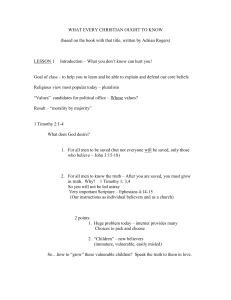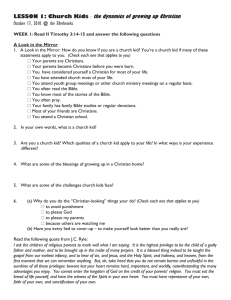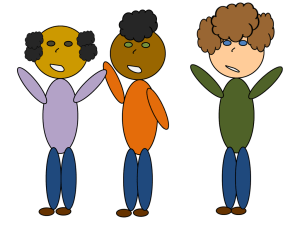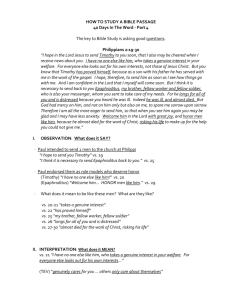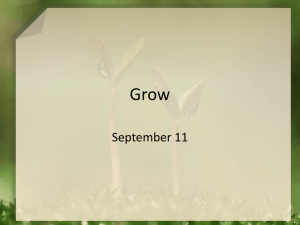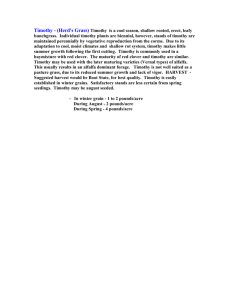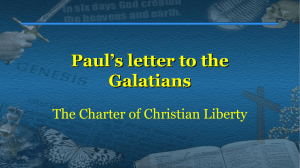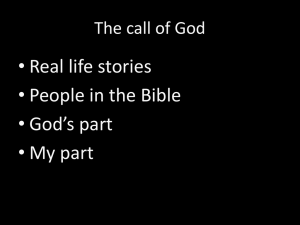Sermon Notes
advertisement
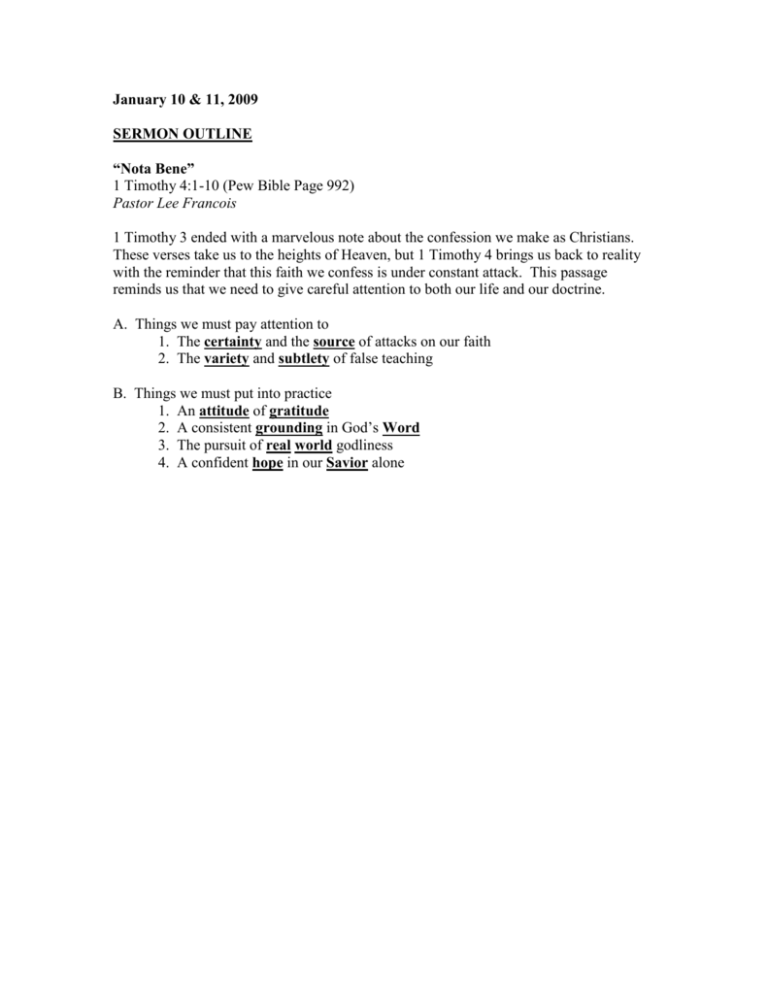
January 10 & 11, 2009 SERMON OUTLINE “Nota Bene” 1 Timothy 4:1-10 (Pew Bible Page 992) Pastor Lee Francois 1 Timothy 3 ended with a marvelous note about the confession we make as Christians. These verses take us to the heights of Heaven, but 1 Timothy 4 brings us back to reality with the reminder that this faith we confess is under constant attack. This passage reminds us that we need to give careful attention to both our life and our doctrine. A. Things we must pay attention to 1. The certainty and the source of attacks on our faith 2. The variety and subtlety of false teaching B. Things we must put into practice 1. An attitude of gratitude 2. A consistent grounding in God’s Word 3. The pursuit of real world godliness 4. A confident hope in our Savior alone January 10 & 11, 2009 SMALL GROUPS BIBLE STUDY QUESTIONS 1 Timothy 4:1-10 Community 1. Spend some time sharing about your Christmas and New Year’s. What was the most significant thing that happened for you over the course of December? What is something that God is doing or teaching you in your life? Thinking – developing a biblical approach to all of life 2. Read 1 Timothy 4:1 – 8. Paul instructs Timothy to train himself ‘to be godly’ (v. 7). What does it mean to live a godly lifestyle and how does such a lifestyle differ from the self-denial taught by the false teachers (v. 3)? 3. In his letter to the Galatians, Paul addresses a similar issue. False teachers were trying to impose a set of rules that they claimed were necessary for godliness, but were not. Read Galatians 5:1 – 15. a. What is the ‘yoke of slavery’ that the false teachers were insisting upon? (vv. 1 – 4). b. Why was Paul so vehemently opposed to this teaching? (vv. 4 – 6) c. What does Paul mean when he says that we have freedom (v. 1, 13)? What are some wrong interpretations of what this means? How have you seen Christian freedom abused? Instead, how should we use the freedom we have in Christ (see v. 6 & 13)? 4. According to Paul, how do we live a godly life? (See Galatians 5:16 – 26) a. What does it mean to ‘live by the Spirit’ (v. 16) and ‘keep in step with the Spirit’ (v. 25)? How do we do this (see Eph 5:17 – 18)? b. How does living by the Spirit show itself in daily living differently than living according to rules (vv. 22 – 23; Col 2:20 – 23)? In your opinion, is living by the Spirit easier or more difficult than living according to legalistic rules? Why? Acting – putting faith into action 5. When it comes to living out our Christian life all of us struggle sometimes to keep focused on living by the Spirit. When you examine your own nature, are you more likely to fall into legalism or to use your freedom in Christ as a license to sin? How can you guard against this tendency?



